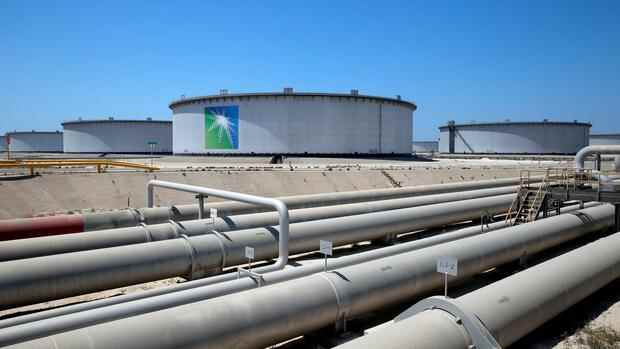The Kingdom tries to present itself as a reliable supplier to the importing countries.
(Photo: Reuters)
Shortly before the summit of the Opec-plus cartel in the coming week, speculation will start again: Are the state oil exporters around Saudi Arabia and Russia sticking to their cautious subsidy policy? Or do they surprise the markets and open the oil locks? For the economies in Europe, which are suffering from rapidly rising energy prices, the latter option would be important in order not to jeopardize the economic upturn.
But even if the OPEC states approach the industrialized countries: The fatal dependence of Europe on the decisions of a club of predominantly autocratic states has rarely been as clear as it is today. Consumers are already groaning under inflation rates of more than four percent in Germany. And if the price of oil continues to be quoted at $ 80 per barrel or even above, the German economy is likely to import inflation for longer than expected via rising energy prices.
The dependency is partly homemade: because the climate protection requirements for European oil companies make sense to drive the energy transition. On the other hand, they prevent companies from investing in new projects. As a result, the European oil companies are likely to lose market shares to the state-owned groups in the OPEC countries in the long term. This in turn increases the power of the cartel, especially since the US oil companies are not stepping in as they used to and compensating for price peaks with additional production.
The old rule on the oil market that high prices are the best recipe against high prices – it only applies to a limited extent as long as OPEC keeps the production quota artificially low and the US shale oil companies do not fill the gap. The situation for the European economies is unfortunate: The high rate of inflation could dampen consumer mood and force the central banks to intervene that stifle the economy.
Top jobs of the day
Find the best jobs now and
be notified by email.
At least one hope remains for the oil-importing countries: the cohesion within the Opec-plus cartel usually disappears the higher the prices are. The incentive of the individual states to promote more than the OPEC quotas allow. In this way, permanent OPEC producers like Nigeria or Iraq can polish up their budgets.
Saudi Arabia is also not interested in rapidly rising prices. The Kingdom tries to present itself as a reliable supplier to the importing countries. There is therefore much to suggest that the price increase will not continue unchecked. Given the highest inflation rates in the past 30 years, this is little consolation.
More: Oil price reaches multi-year high – five reasons for the commodity rally.
